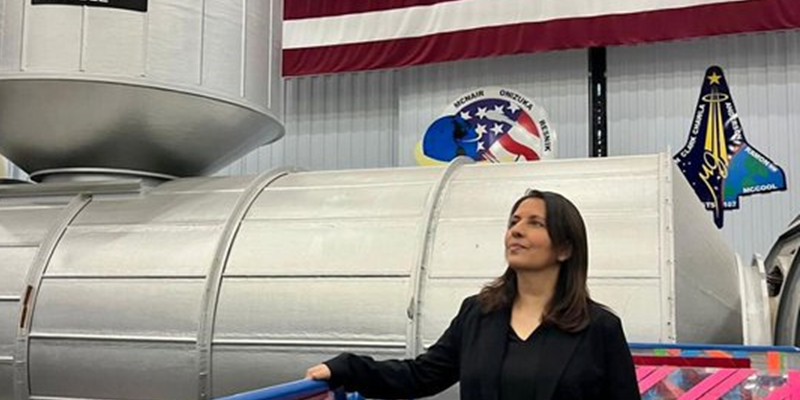‘This milestone will serve as an inspiration for future generations and will highlight the importance of gender equality in science, technology, engineering, and mathematics.‘
By Shula Rosen
The first female Israeli astronaut may be a reality after a government minister met with NASA about training a potential candidate.
Israeli Innovation, Science, and Technology Minister Gila Gamliel met with NASA officials at the Johnson Space Center in Houston, Texas.
“This milestone will serve as an inspiration for future generations and will highlight the importance of gender equality in science, technology, engineering, and mathematics,” Gamliel said in a statement.
Gamliel said, “This training will continue the historic legacy of Ilan Ramon. Now, more than ever, it is vital to cultivate growth engines for Israel’s economy and society,” she added.
In addition, Gamliel discussed strengthening the ties between NASA and Israel’s Space Agency after a successful effort in the Rakia mission to the International Space Station involving Israel’s second astronaut Eytan Stibbe.
Gamliel also discussed Israel’s involvement in the Artemis project, which will send more astronauts to the moon and Israeli technology that will protect astronauts from radiation.
Israeli scientists have already developed the AstroRad vest which has been used on several Artemis missions.
In August, six former Israeli high school students began researching space travel’s effects on neurodegenerative diseases, and the results were published in a peer-reviewed academic journal.
The results have implications both for long-term space travel and for the treatment of neurodegenerative disorders such as Alzheimer’s disease.
The study was conducted on Earth and the International Space Station. It was performed by students of Shehakim school in Nahariya in connection with researchers from the University of Haifa and Oranim College.
“The fact that high school students, most of whom are now soldiers in the army, have contributed to a publication in a leading scientific journal is an extraordinary achievement. It is uncommon in the scientific community and sets a precedent for future research collaborations involving young scientists,” said Haifa University’s Dr. Amir Sapir.
